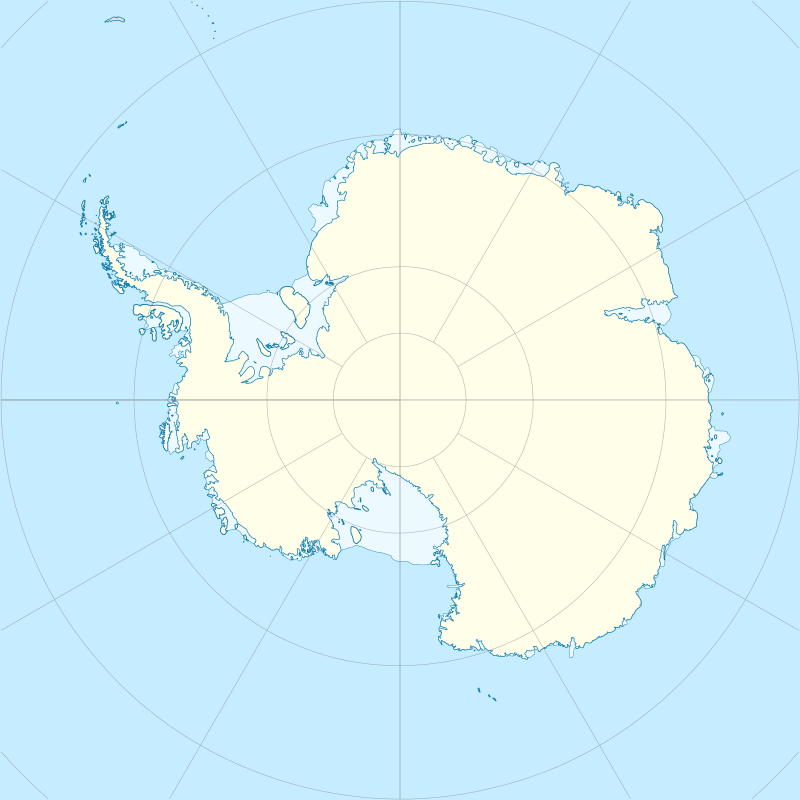Time in Antarctica
Antarctica sits on every line of longitude, due to the South Pole being situated on the continent. Theoretically, Antarctica would be located in all time zones; however, areas south of the Antarctic Circle experience extreme day-night cycles near the times of the June and December solstices, making it difficult to determine which time zone would be appropriate. For practical purposes time zones are usually based on territorial claims; however, many stations use the time of the country they are owned by or the time zone of their supply base (e.g. McMurdo Station and Amundsen–Scott South Pole Station use New Zealand time due to their main supply base being Christchurch, New Zealand).[1] Nearby stations can have different time zones, due to their belonging to different countries. Many areas have no time zone since nothing is decided and there are not even any temporary settlements that have any clocks. They are simply labeled with UTC time.[2]
TZ database
The file zone.tab of the tz database contains the following zones, columns marked with * contain data from the file zone.tab. Only permanently inhabited stations are tracked by the tz database staff. Some summer only stations with different time might exist.
| Country code* | Coordinates* | Zone name* | Comment* | UTC offset standard time |
DST | Area covered | |
|---|---|---|---|---|---|---|---|
| AQ | -6448-06406 | Antarctica/Palmer | Palmer Station, Anvers Island | −03:00 | No | Palmer Land | |
| AQ | -6734-06808 | Antarctica/Rothera | Rothera Station, Adelaide Island | −03:00 | No | Graham Land | |
| AQ | -7200+00232 | Antarctica/Troll | Troll Station, Queen Maud Land | +00:00[3] | Doubly so | Queen Maud Land | |
| AQ | -690022+0393524 | Antarctica/Syowa | Syowa Station, E Ongul I | +03:00 | No | Queen Maud Land, Enderby Land | |
| AQ | -6736+06253 | Antarctica/Mawson | Mawson Station, Holme Bay | +05:00 | No | Mac. Robertson Land | |
| AQ | -7824+10654 | Antarctica/Vostok | Vostok Station, Lake Vostok | +06:00 | No | Inland Antarctica, Queen Maud Land | |
| AQ | -6835+07758 | Antarctica/Davis | Davis Station, Vestfold Hills | +07:00 | No | Wilkes Land | |
| AQ | -6617+11031 | Antarctica/Casey | Casey Station, Bailey Peninsula | +08:00 | No | Wilkes Land | |
| AQ | -6640+14001 | Antarctica/DumontDUrville | Dumont-d'Urville Station, Adélie Land | +10:00 | No | Adélie Land, Victoria Land | |
| AQ | -5430+15857 | Antarctica/Macquarie | Macquarie Island | +11:00 | No | Macquarie Island | |
| AQ | -7750+16636 | Antarctica/McMurdo | McMurdo, South Pole, Scott (New Zealand time) | +12:00 | Yes | Ross Dependency | |
| -- | -9000+00000 | Antarctica/South_Pole | +12:00 | Yes | South Pole |
The coordinates are latitude and longitude, and for each there are 2 or 3 digits for degrees, 2 digits for minutes and for some 2 digits for seconds.

Daylight saving time
For the most part, daylight saving time (DST) is not observed in Antarctica because 95 percent of the continent is located south of the Antarctic Circle and the midnight sun phenomenon renders the use of DST unnecessary, and it would further complicate communication with the claimant countries in the northern hemisphere.
However, a few regions such as the Ross Dependency and, formerly, Palmer Land, observe the time and use of DST of the countries they are supplied from, New Zealand and Chile, respectively.[1] The areas have DST during the southern summer, when there is the northern winter, including January.
References
- "Local Time → Antarctica @ Time Genie". Timegenie.com. Retrieved 2013-07-24.
- "Current local time in Antarctica – South Pole". Timeanddate.com. 2013-04-07. Retrieved 2013-07-24.
- Forskingsstasjonen Troll (Norwegian Polar Institute) (The Norwegian text under the webcamera says "The time zone where Troll is located, UTC+0, is 1 hours behind Norwegian time". Contacts with the Norwegian Polar Institute has revealed that they use UTC+2 (Norwegian DST) during the dark winter, for communication simplicity, since no airplanes fly anyway then)

.svg.png)